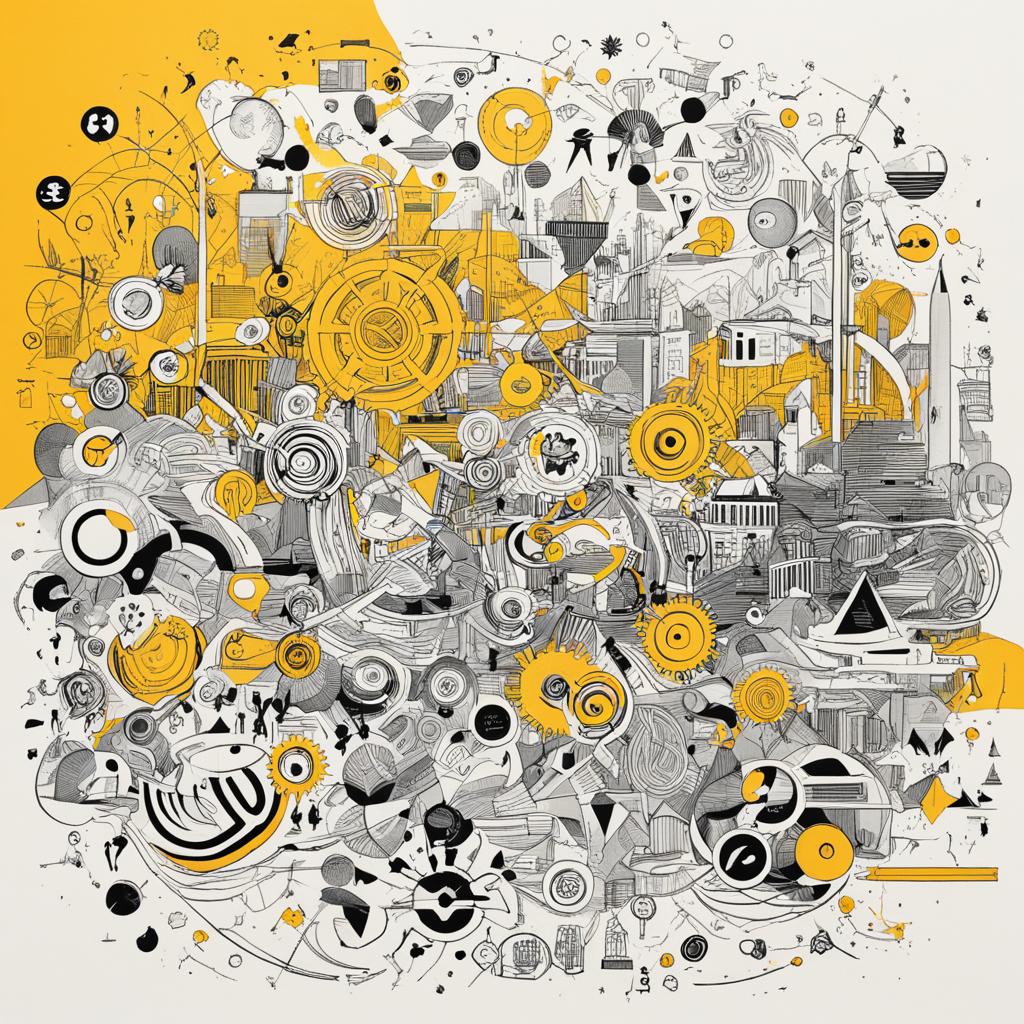Did you know that power dynamics play a crucial role in shaping our behavior in decision-making, relationships, and social structures? Power has a profound impact on the way we think, act, and interact with others. Understanding these dynamics is key to navigating the complexities of power in our personal and professional lives.
Understanding Power and Influence
Power and influence play significant roles in shaping social dynamics. In this section, we will explore the definition and intricacies of power, as well as its relationship with influence. Understanding how individuals acquire and exert power can provide valuable insights into the dynamics of social interactions.
The Definition of Power
Power can be defined as the ability to influence others and control resources or outcomes. It is not limited to formal positions or titles, as individuals can possess power in various contexts—be it a workplace, family, or community.
The Acquisition and Exertion of Power
Power can be acquired through various means, such as expertise, social connections, and social status. Some individuals are born into power, while others work tirelessly to climb the social ladder.
Exerting power involves utilizing influence to shape decisions, behaviors, and outcomes. It can be done through direct commands or more subtle forms of persuasion and manipulation. The way power is exerted can greatly impact social dynamics, relationships, and even the psychological well-being of individuals involved.
The Impact of Power on Social Dynamics
Power dynamics heavily influence social interactions, shaping the behaviors and choices of individuals. Those in positions of power often have the ability to set norms, dictate rules, and determine the distribution of resources. This can result in hierarchical structures, where power imbalances can lead to inequalities and social stratification.
“Power is not a means; it is an end.” – George Orwell
The Psychology of Decision-Making in Power Structures
When it comes to decision-making, power dynamics play a significant role in shaping the choices individuals in positions of authority make. Understanding how power affects decision-making processes is crucial for comprehending the complexities of human behavior.
Psychology offers valuable insights into the psychological factors that influence decision-making within power structures. Research has shown that power can alter individuals’ cognitive processes and biases, leading to different decision outcomes compared to those in non-powerful positions.
One psychological phenomenon related to decision-making in power structures is known as “power asymmetry.” Power asymmetry refers to the unequal power distribution between individuals or groups, resulting in imbalances that impact decision-making. When individuals hold power over others, they may be more likely to prioritize their own interests and goals, ignoring the needs and perspectives of those with less power.
“Power dynamics have a profound influence on decision-making. Those in positions of power must navigate the delicate balance between their own objectives and the impact their choices have on others.”
Furthermore, the psychology of decision-making in power structures identifies the role of social influence and conformity. Individuals in powerful positions may experience pressure to conform to existing power norms, affecting their decision-making processes. They may rely on the opinions and expectations of others in similar positions to validate and reinforce their choices.
Moreover, the psychology of decision-making in power structures also encompasses the concept of perceived legitimacy. Powerholders often base their decisions on their perception of their own right to exercise power. This perceived legitimacy can affect both the decision-making process and the acceptance of decisions by others.
Understanding the psychology of decision-making in power structures is essential for promoting fair and inclusive decision-making processes. It highlights the need to consider power dynamics and their impacts when analyzing choices made by individuals in positions of authority.
The Influence of Power on Ethical Decision-Making
In addition to its impact on decision outcomes, power dynamics also influence ethical decision-making. Individuals in positions of power face unique ethical challenges due to the potential for abuses of power. Power can amplify moral hazards and tempt individuals to prioritize their self-interests over ethical considerations when making decisions.
The psychology of decision-making in power structures highlights the importance of ethical frameworks and values in guiding individuals with power. It emphasizes the need for ethical leadership, transparency, and accountability to maintain trust and ethical decision-making within power structures.
Overall, the psychology of decision-making in power structures provides valuable insights into the intricate interplay between power dynamics, psychology, and decision-making processes. By understanding these dynamics, we can work towards creating systems that empower individuals, promote ethical decision-making, and foster more equitable outcomes.


The Role of Power in Relationships
Power dynamics play a significant role in shaping relationships, whether they are personal or professional. The distribution of power within a relationship can greatly influence its dynamics, communication, and level of trust.
When there is an imbalance of power, one person may have a greater ability to influence the decisions, actions, and emotions of the other. This can create a dynamic where one party dominates while the other feels subservient or powerless.
Power can be used as a tool to control and manipulate others, leading to strained relationships and diminished trust. It can also create a breeding ground for resentment and feelings of injustice.
On the other hand, when power is shared and respected within a relationship, it fosters a sense of equality, collaboration, and mutual respect. Both parties feel valued and their opinions hold weight, leading to healthier and more fulfilling relationships.
It is important to understand that power dynamics in relationships are not static. They can shift and evolve over time based on various factors such as personal development, changes in circumstances, and the willingness of both parties to communicate and negotiate power imbalances.


Recognizing and addressing power imbalances in relationships is crucial for maintaining healthy dynamics. Open and honest communication, active listening, and mutual empathy can help navigate power dynamics and ensure that both individuals feel heard, valued, and empowered.
Power Dynamics in Professional Relationships
Power dynamics also play a key role in professional relationships, such as those between employers and employees, managers and subordinates, or colleagues in a team. In these contexts, power can shape the communication and decision-making processes within the workplace.
Leaders who use their power to inspire and empower their team members tend to foster a positive work environment where individuals feel motivated, supported, and valued. On the other hand, leaders who abuse their power may create a toxic workplace culture characterized by fear, resentment, and low morale.
Harnessing power in a professional setting requires ethical decision-making and a deep understanding of the influence one holds over others. By promoting inclusivity, fairness, and collaboration, professionals can foster healthy power dynamics that contribute to individual and organizational growth.
- Recognize and address power imbalances in relationships.
- Communicate openly and honestly.
- Practice active listening and empathy.
- Strive for shared power and respect.
By being aware of power dynamics and actively working towards a balance of power in relationships, individuals can create meaningful connections, build trust, and foster positive influences.
The Psychology of Dominance and Submission
In the realm of power structures, dominance and submission play pivotal roles in shaping psychological dynamics. Understanding the motivations and behaviors associated with these roles provides valuable insights into human behavior and social interactions.
Psychology is at the core of dominance and submission within power structures. Dominance, characterized by control and authority, can stem from various factors such as personality traits, expertise, or social status. Those who adopt dominant roles often exhibit confidence, assertiveness, and a desire to influence others.
On the other hand, submission is marked by a willingness to defer to the authority or control of others. Submissive individuals may feel more comfortable following instructions and decisions made by those in dominant positions. This psychology of submission can be influenced by factors such as personality traits, upbringing, or cultural norms.
The dynamics of dominance and submission can manifest in different contexts, from interpersonal relationships to professional settings. In intimate relationships, for example, power imbalances can influence communication patterns, conflict resolution strategies, and overall relationship satisfaction.


Power structures within organizations also demonstrate the interplay between dominance and submission. Leaders who possess dominant traits may have a greater influence over decision-making processes, resource allocation, and team dynamics. Subordinates, in turn, may adopt submissive behaviors to navigate the power dynamics within the workplace.
It is essential to recognize that dominance and submission exist on a continuum, and individuals may exhibit varying degrees of both roles depending on the situation. The psychology of dominance and submission is complex and multifaceted, influenced by personal experiences, societal expectations, and the interplay of power dynamics.
Understanding these psychological dynamics can lead to a greater awareness of one’s own behaviors and motivations, as well as foster empathy and effective communication within power structures. By recognizing the intricate relationship between dominance, submission, and psychology, individuals can navigate power dynamics more effectively and create healthier and more equitable relationships and organizations.
Social Structures and Power Distribution
In society, power is not distributed evenly but rather exists within social structures that determine the allocation and access to power. These social structures, such as governments, corporations, and cultural institutions, shape the dynamics of power and influence, impacting the lives of individuals within them.
Within these structures, power dynamics play a crucial role in shaping societal norms, values, and group interactions. Power hierarchies establish the positions of authority and control, creating a system where some individuals hold more power and influence than others. This uneven distribution of power can have far-reaching consequences, both positive and negative.
Power dynamics within social structures have a profound influence on individuals’ behaviors and opportunities. Those with more power often enjoy privileges and advantages, while those with less power may face barriers and limitations. This unequal distribution of power can perpetuate social inequalities and reinforce existing power structures.
Furthermore, power dynamics within social structures can shape collective decision-making processes and agendas. Powerful individuals or groups may exert their influence to maintain their positions of authority and preserve the status quo, affecting the policies and priorities that govern society.
Effects of Social Structures and Power Dynamics
The impact of social structures and power dynamics extends beyond the individuals directly involved. Power imbalances can lead to the marginalization and exclusion of certain groups, creating divisions and reinforcing systemic injustices.
Moreover, power dynamics within social structures can influence the distribution of resources and opportunities. Those in positions of power may have greater access to resources, networks, and support, enhancing their chances of success and advancement. Conversely, those lacking power may face increased struggles and constraints in achieving their goals and aspirations.
The influence of social structures and power dynamics is evident in various realms of life, including politics, economics, education, and healthcare. Understanding and critically analyzing these structures can help identify and challenge power imbalances, fostering more equitable and inclusive societies.


Power does not exist in a vacuum but is intricately intertwined with the social structures that govern our lives. By examining these structures and the power dynamics within them, we can work towards creating a more just and equitable society, where power is distributed more fairly and everyone has the opportunity to thrive.
The Influence of Power on Perception and Cognition
Power has a significant impact on how individuals perceive and process information, as well as how they make sense of the world around them. The dynamics of power shape our perception and cognition, influencing the way we interpret events, form judgments, and make decisions. Understanding this influence is crucial for comprehending the complexities of human behavior.
When individuals hold positions of power, their perceptions can be influenced by a sense of entitlement and superiority. Research has shown that power can lead to biases in perception, causing individuals to interpret information in a way that aligns with their own interests or desired outcomes.
Furthermore, power can shape cognition by affecting the processing and retrieval of information. Individuals in positions of power have been found to be more confident in their judgments, which can result in overestimating their own abilities or downplaying the input of others.
Moreover, power can impact cognitive flexibility and openness to alternative perspectives. Those with power tend to have a narrower focus and may be less open to considering different viewpoints or adapting their mental frameworks.
The cognitive biases influenced by power include confirmation bias, where individuals seek and interpret information that confirms their preexisting beliefs, and stereotype bias, where individuals rely on stereotypes to categorize and judge others. These biases can lead to flawed decision-making, perpetuating inequalities and hindering progress.
“Power can create a mental distortion that reinforces existing belief systems and biases, making it challenging to see beyond one’s own perspective.”
Recognizing the influence of power on perception and cognition is crucial for fostering a more inclusive and equitable society. By understanding these dynamics, individuals and leaders can work towards minimizing biases and promoting fair and objective decision-making processes.
Continued: Section 8: Power Abuse and its Consequences


Power Abuse and its Consequences
Power can be a double-edged sword, capable of both positive and negative outcomes. When power is abused, the consequences can be far-reaching and devastating. The misuse of power not only has psychological ramifications but also impacts society as a whole.
Power abuse involves the unjust and unethical exercise of authority, leading to manipulation, control, and harm. Those in positions of power may use their authority to exploit others, suppress dissent, or engage in corrupt practices.
“Power without compassion and morality is a recipe for disaster.” – Robert Greene
The consequences of power abuse are significant. At an individual level, victims of power abuse may experience psychological trauma, such as anxiety, depression, and post-traumatic stress disorder. They may develop a deep sense of powerlessness and lose trust in others.
On a societal level, power abuse erodes trust and weakens the social fabric. It perpetuates inequality, reinforces oppressive systems, and hinders progress. Institutions tainted by power abuse often suffer from corruption and lack of accountability.
Psychological Impacts of Power Abuse
Power abuse can have lasting psychological effects on both the abuser and the abused. For the abuser, an unchecked exercise of power can lead to a distorted sense of entitlement, narcissism, and an inability to empathize with others.
For the victim, the psychological impacts of power abuse can be profound. They may experience feelings of shame, guilt, and worthlessness. The abuse can shatter their self-esteem and confidence, making it difficult for them to assert themselves and rebuild their lives.
Societal Consequences of Power Abuse
When power is misused, societal consequences are inevitable. Power abuse undermines the integrity of institutions, weakens democratic processes, and fosters a culture of fear and silence. It erodes public trust and hinders social progress.
Power abuse can also perpetuate systemic inequalities and marginalization. Certain groups may bear the brunt of power abuse due to their social status, gender, race, or other characteristics. This can intensify existing disparities and hinder efforts to achieve social justice.
The consequences of power abuse are far-reaching and demand attention. By understanding the psychological and societal impacts of power misuse, we can work towards creating a world where power is wielded responsibly, ethically, and for the betterment of all.
Empowering Others and Shared Power
In today’s interconnected world, the concept of shared power and empowering others has gained significant importance. It goes beyond traditional hierarchical structures and emphasizes collaboration, inclusivity, and positive outcomes. By distributing power in a balanced and equitable manner, we can create environments that foster growth, creativity, and shared decision-making.
Empowering others involves recognizing and valuing their strengths, expertise, and unique perspectives. It is about fostering a culture that encourages individuals to take ownership of their work, make significant contributions, and drive change. When we empower others, we create an environment where everyone feels valued, heard, and respected, which, in turn, leads to increased productivity and innovation.
Shared power refers to the idea that power is not concentrated in the hands of a few individuals but is distributed among all stakeholders. It recognizes that everyone has valuable insights and experiences to offer, regardless of their position or role. Shared power encourages collective decision-making and the active participation of all individuals involved.
Strategies for Empowering Others and Promoting Shared Power
- Foster a growth mindset: Encourage individuals to embrace challenges, learn from failures, and see setbacks as opportunities for growth. This mindset promotes a sense of empowerment and resilience.
- Create open communication channels: Establish a culture of open and transparent communication where everyone feels comfortable sharing their ideas, concerns, and feedback. Encourage active listening and respect for diverse viewpoints.
- Provide opportunities for skill development: Offer training programs, mentorship, and professional development opportunities that enable individuals to enhance their skills and knowledge. This not only empowers them but also cultivates a culture of continuous learning.
- Promote collaboration and teamwork: Encourage cross-functional collaboration and create opportunities for individuals to work together on projects, initiatives, and problem-solving. This fosters a sense of shared responsibility and collective achievement.
- Lead by example: Demonstrate shared power by actively involving others in decision-making processes, seeking input, and valuing diverse perspectives. By modeling collaborative behavior, leaders can inspire others to do the same.
By embracing the principles of empowering others and shared power, we can transform organizations, communities, and society as a whole. It is through the collective efforts of empowered individuals that positive change can be achieved.
Power and Identity
Power dynamics have a profound impact on individuals’ sense of self and social identity. The influence of power can shape how individuals perceive themselves and how they fit into societal structures. Power has the ability to both empower and marginalize certain identities, highlighting the intricate relationship between power and identity.
When individuals hold positions of power, their identity becomes intertwined with the authority they possess. This can promote a sense of personal significance and influence their behavior and decision-making. Individuals in positions of power may experience a heightened sense of self-esteem and confidence, which can further solidify their identity.
“With great power comes great responsibility.”
Conversely, power dynamics can also shape how individuals perceive themselves when they lack influence or authority. Those on the receiving end of power imbalances may face challenges in asserting their identity and experiencing a sense of belonging. This can lead to feelings of marginalization, disempowerment, and diminished self-worth.
The intersection of power and identity is complex and multifaceted. It encompasses factors such as gender, race, ethnicity, socioeconomic status, and other social markers. These aspects of identity can significantly influence power dynamics and determine an individual’s position within societal structures.
Understanding the relationship between power and identity is crucial for promoting inclusivity and equality. Acknowledging the disparities created by power imbalances allows for the identification of systemic barriers and the implementation of strategies that challenge existing power structures.
Power and Social Identity
Power dynamics can shape social identity, influencing how individuals perceive and connect with different social groups. Those with privilege and power tend to align their social identity with dominant groups, reinforcing existing power structures.
On the other hand, individuals who experience marginalization or lack power may seek out social groups that offer a sense of belonging and support. These groups often emerge as a response to power differentials and provide a platform for empowerment and collective action.
- Power dynamics can shape how individuals perceive their gender identity, affecting notions of masculinity and femininity.
- Power imbalances based on race and ethnicity can perpetuate systemic discrimination and shape individuals’ racial and ethnic identities.
- Socioeconomic status can influence an individual’s social identity, creating divisions and disparities in power.
The influence of power on social identity highlights the need for inclusive and equitable social structures. By challenging power dynamics that perpetuate systemic inequalities, society can promote the development of diverse and inclusive identities.
Understanding the interplay between power and identity is crucial for creating a more equitable and inclusive society. By examining power dynamics through the lens of identity, individuals can challenge existing power structures and work towards a more just and egalitarian future.
Power and Ethics
When discussing power and influence, it is crucial to address the ethical considerations that accompany these dynamics. Power has the potential to shape and transform societies, making it imperative for individuals and organizations to navigate their power responsibly and ethically.
One of the key responsibilities that come with wielding power is understanding the impact it has on others and their well-being. Ethical decision-making involves considering the consequences of actions and prioritizing the greater good over personal gain. It requires individuals in positions of power to act with integrity, honesty, and fairness, ensuring that their actions align with moral principles.
“With great power comes great responsibility.”
Ethics play a vital role in maintaining the balance and equality within a society. It sets the boundaries and standards for acceptable behavior, ensuring that power is not abused or used to exploit others. Ethical decision-making promotes transparency, trust, and accountability, bolstering social structures and fostering a sense of justice and fairness.
Moreover, ethics can influence the distribution of power and promote inclusivity. By recognizing and addressing power imbalances, individuals can empower others and create more equitable systems. Shared power allows diverse voices and perspectives to be heard, leading to better decision-making and positive societal change.
Influence, when used ethically, can be a powerful tool for positive change. Ethical influencers inspire, motivate, and bring about transformational shifts in behavior and attitudes. They prioritize the well-being of others and seek to make a positive impact on society.
In conclusion, power and ethics are intricately intertwined. Empowering oneself and others requires a deep understanding of the responsibilities that come with power, along with the ethical implications of every decision made. By exercising power ethically, individuals and organizations can harness their influence to create a more just and equitable world.
Conclusion
In this article, we have delved into the fascinating realm of the psychology of power. By examining how power dynamics shape decision-making, relationships, and social structures, we have gained valuable insights into the intricate workings of human behavior.
Understanding power and influence is crucial in navigating the complexities of our personal and professional lives. Armed with this knowledge, individuals can make more informed choices, build healthier relationships, and contribute to creating positive change.
Throughout our exploration, we have uncovered the psychological factors that influence decision-making in power structures and the role of power in relationships. We have also examined the dynamics of dominance and submission, the distribution of power within social structures, and the influence of power on perception and cognition.
We have acknowledged the dark side of power and its potential for abuse, discussing the consequences of power misuse and the importance of ethical decision-making. Finally, we have explored the concept of empowering others and shared power, highlighting the benefits of collaboration and inclusivity.
In conclusion, by grasping the psychology of power and its far-reaching influence, we empower ourselves to navigate power dynamics with greater understanding and effectiveness. Through self-awareness, empathy, and ethical considerations, we can harness the power within us to create a positive impact in our personal and professional spheres.
